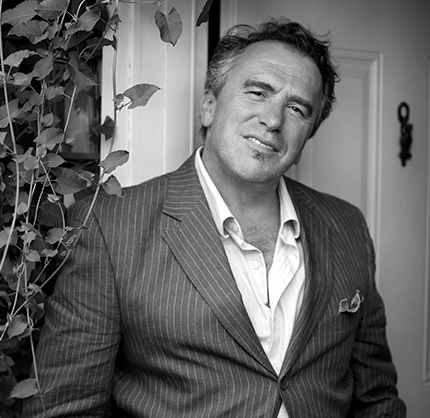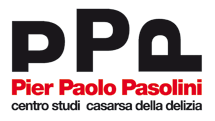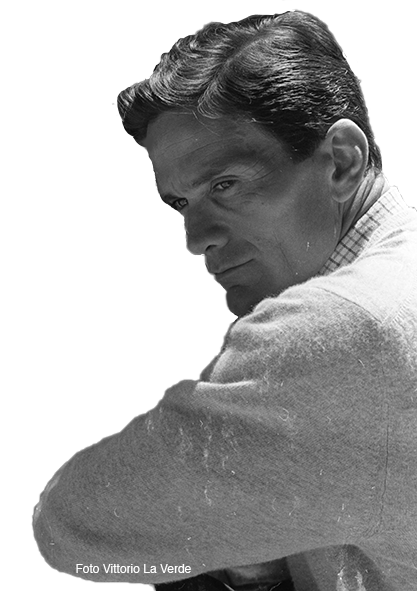
Il poeta e scrittore italo-canadese Corrado Paina ha inviato in regalo al Centro Studi Pasolini di Casarsa un suo recente scritto su Pasolini, che a breve sarà pubblicato in Canada in una silloge di suoi scritti. Lo pubblichiamo qui volentieri.
That night Captain Sbrana called us to the deck and he gave us the news that had just come over the wire.
-Pasolini is dead. He was killed.-
It was November the second, 1975.
Pasolini was killed in the night of November the 1st.
I read the note over again. I looked at Luigi and tears came to our eyes.
Luigi and I embarked in Lima, sent home via cargo ship by a benevolent Italian ambassador stationed in the capital of Perù.
We were penniless and hungry.
Now we were heading to Paita, Panama, Gibraltar and Cape D’Antibes.
The journey was scheduled to end in Savona. We dreaded our final destination.
Luigi and I didn’t want to go home. Our parents, our schools, our country, all had participated in the killing of the artist.
Pasolini was not killed by the fascists as his friends were claiming.
He was not killed by Pino Pelosi. As Artaud would say, he was suicided long before his death by our parents. Drowned in the sea of the silent majority.
We hated Pasolini. We loved Pasolini. We loved his poetry. We hated his poetry. We loved his movies. We hated his movies. Freakish his sense of mission, so obnoxiously radical, so perversely communist and so catholically queer. To him we were the students throwing stones at the cops. The cop representing the new lumpenproletariat of his new gospel full of rebellious and conformist metaphors. To him the youth of the South was the ultimate missing element of the lost palingenesis.
But we were beyond him. We were trying to forget we were born in Italy. We were planning to do what Pasolini would have never been able to do. To get rid of our mother.
Pasolini would have hated me. For him I was the student who goes to demonstrations during the day and sleeps and eats under the paternal roof at night. But he would have loved my curly hair.
That afternoon in Ostia, the light was lapping at Pierpaolo Paosolini’s garden. The gate was locked by just a piece of rope. One had to undo the timid knot. Pierpaolo’s garden was always open to the people. Is there a message in the use of a rope instead of a chain ?
It took many years to build this garden in Ostia. Where Pierpaolo was killed. Where a car crushed his chest. It took too many years to digest the violent death of a homosexual. To mourn, to love the death of a malodorous flower.
His verses now on marble plaques, are lashed by the sea wind.
We loved Pasolini. We hated Pasolini.
Ostia before falling asleep is harvesting sadness from the giant waves.
I got into the garden with a friend from Rome.
Walking through famous verses and stepping on infamous and holy ground.
Were we all guilty of his murder ? Italy, this province of contempt and vulgarity was the killer ?
Nobody is responsible. Everybody is guilty.
But Italy was more a witness than a perpetrator.
Was Pasolini dead before being killed? Was he suicided?
Were Luigi and I dead before our departure ?
Were Luigi and I ever alive ?
Perhaps we are never dead. Really alive. Or really dead.
We will all be killed. We did it to ourselves so long ago.
Corrado Paina, nato a Milano ma da tempo residente a Toronto, dove è impegnato anche per la tessitura di rapporti culturali tra l’Italia e il Canada, ha pubblicato per Mansfield Press le raccolte delle poesie Hoarse Legend (2000), The dowry of education (2004), The alphabet of the traveler (2006), Souls in plain clothes (2008). In Italia ha pubblicato la raccolta di racconti brevi Di corsa (Monteleone/Mapograph – Vibo Valentia), le raccolte di poesie Tempo rubato ( Atelier 14 – Milano) e Darsena inquinata ( Moderata durant – Latina), il romanzo Tra Rothko e tre finestre ( Ibiskos) e di recente la silloge poetica L’alfabeto del viaggiatore (Silvia ed.) Ha pubblicato inoltre molte plaquettes con Il pulcino e l’elefante di Alberto Casiraghi, I quaderni d’Orfeo di Roberto Dossi and Luciano Ragozzino e Il ragazzo innocuo di Dario Borso. Il suo College street – Little Italy – The Renaissance strip (Mansfield Press ) è stato finalista del Toronto Heritage Award.
*Foto in copertina: © Vittorio La Verde



